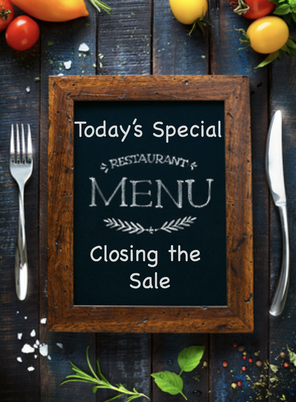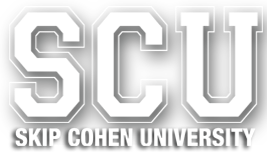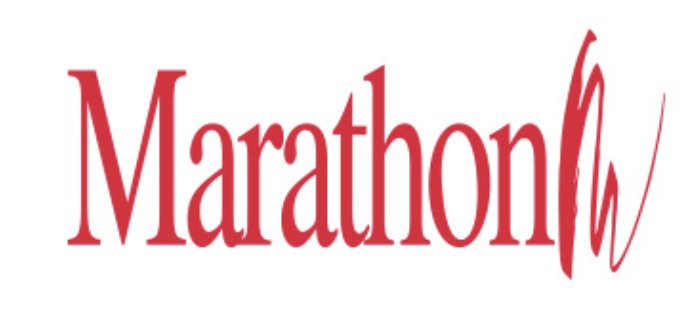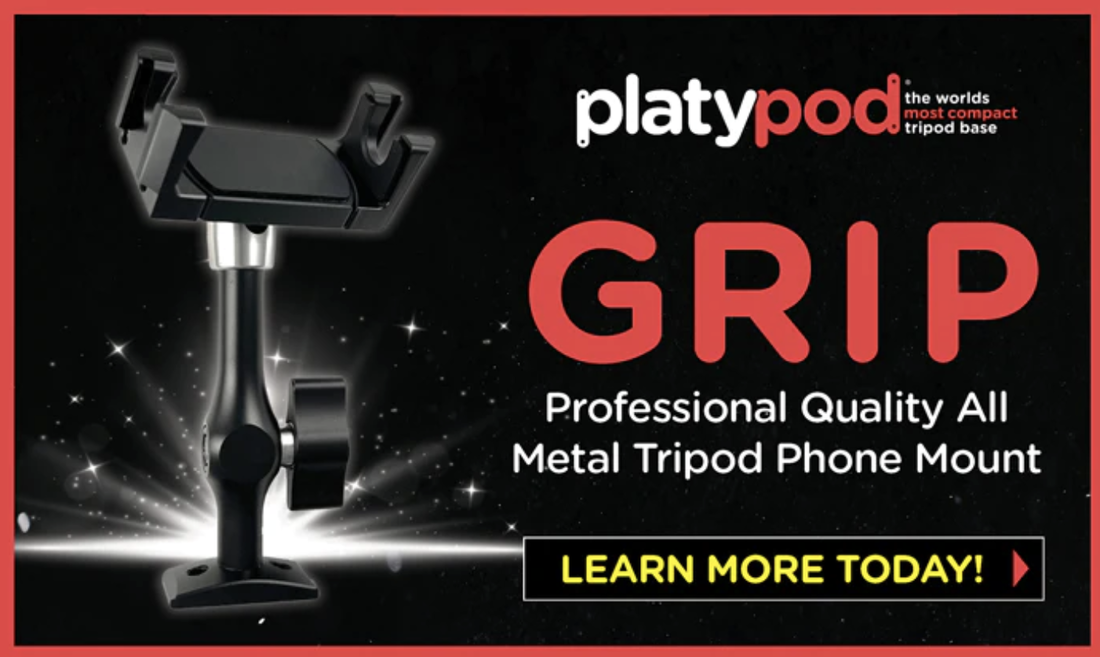 I started Fast Food Friday with one singular goal - to get all you "right-brain creatives" thinking about what you might be missing in building your business. Most of the Friday "blue plate specials" have been short easy to implement ideas to help you fine-tune your business. They're meant to hopefully spark an idea or two on things you should be doing better. But today's post is out of the SCU archives, and I try and share it every couple of years because it's one of the best guest posts ever written about closing the sale. It's from my good buddy Scott Bourne who helped me start SCU, co-authored GoingPro, still one of the very best books about getting started in photography and who's been an inspiration to thousands of us! And while this post was last shared in 2017, you'll find Scott's current work and wisdom on his new site, Picture Methods. Think about this - What good is working hard to create the very best images of your life, if you can't lose the sale? It's not rocket science, but it does take practice learning to listen to your clients, read their reactions, and then present ideas/products they want to buy. You're part of a fantastic industry that can be incredibly rewarding financially as well as emotionally, and Scott's sharing advice so many of you need. Learn to close the sale and start building a more significant customer base and stronger revenue stream. "Without customers you don't have a business, you have a hobby!" Don Peppers and Martha Rogers You Can't Make Money if You Can't Close the Saleby Scott Bourne
My mentor in sales was Zig Ziglar. He had a motto: "ABC" i.e., "Always Be Closing." It's a known fact that the NUMBER one reason people don't get paid, hired, etc., is they either don't know how to close, forget to close or are afraid to close. Don't let the word "close" scare you. At it's most basic form it just means to ask someone "Will you hire me." Common sense right? But you'd be surprised to learn how many people make sales presentations that do NOT contain a close. It's a losing proposition. Remember that good sales skills are as important as a good camera. Sales is not a dirty word. It's how you feed your family. Zig used to say "Nothing happens until somebody sells something." So don't be afraid. Persuading people to do what they already want to do is not sleazy. It's just good business. While I can't teach you everything I know about closing the deal in a blog post, I can and will give you some starter ideas that might make this easier for you. The following suggestions assume the following:
The Assumptive Close This is a basic technique where you proceed as if you have the business. "So Mrs. Jones shall I put you down for our Gold package?" The assumptive close is the first one you should learn because it can (and often should) be combined with other sales techniques. It asks the basic question that implies or assumes the prospect wants to hire you and it very often is all you need to get hired. The Calendar Close This is another basic technique used to book an appointment. If you are "two-step" selling, meaning you first sell the appointment and THEN the job, you need to know this one. Have a diary or a calendar in your hand and ask, "Mrs. Jones would next Wednesday at one or Thursday at two be a good time to meet with my staff to solidify the details?" Show the book to the prospect. Draw their attention to a specific date and time. Keep them engaged. This works. The Minor Points Close This is less aggressive than the assumptive close, but will be a good build up to the finale. Start by asking questions like these: "Mrs. Jones of our packages, which appeals to you most; the Gold or the Silver?" or "Do you have a venue picked for the wedding? Good we're very familiar with that church and can make sure your daughter looks her best there because it's got great lighting." Minor points are a way of walking the prospect toward yes. Which is of course where we want them to go. The Shame Close This is a delicate close that needs to be practiced, but used well, can be ultra effective. This close requires set up. Using weddings again as an example, you might ask: "Mrs. Jones who is your florist? They are great, but a little on the expensive side. How about your caterer? Again great but not the cheapest. Wouldn't it be a shame to invest all that money in a great cake and a great florist, but have substandard photography to remember the event by?" This sounds cheesy, but it is important and it works. After all, most of the time, when I was shooting weddings the bride was spending more on the flowers and the catering than they wanted to spend on photography. The flowers end up in the dumpster outside the hotel and catering - well we all know that ends up in the toilet sooner or later. But the photos? They are the lifetime keepsake. We have to build value and this is a great way to do it. The Hassle Free Close There are lots of photographers looking for business. If you can make YOUR company just a little bit easier to deal with than the next person, you might just get the business. Hence the hassle free close. There are some setup items with this close too. Make sure you accept EVERY reasonable form of payment. Make sure your business hours are convenient for your prospects - not for you. Make sure you are easy to find and easy to follow up with. But then, move in with the final step: "Mrs. Jones we've talked about the services we offer, you've agreed that you like our work. We've met with your lovely daughter and we fell in love with her. All that's left is to sign the contract and book the date. I've prepared the document here, all you need to do is sign here and arrange payment and we're all set." Making this seem like the natural thing to do, i.e. hire a photographer is part of the hassle free close. And you might note that some or all of these could be combined with the first close I mentioned, the Assumptive Close. Some of you are reading this and it makes you uncomfortable. To you I say hire someone to do this for you or prepare to starve. Sales are important. Without a sale there is no business; no need for a camera or a studio or anything else. You have to have the tools necessary to do the sales part of the business if you want to succeed. And these closes are simple tools. No different than a flash diffuser or a reflector. They are all intended to make the final result a positive one. Don't be ashamed to be a great sales person. If your heart is in the right place you need to know one last thing. Sales isn't something that you do TO someone - it's something that you do FOR someone. Now go get the business. Skip and I are rooting for you. Remember, objections are buying signals and when you start dealing with objections you are already starting the closing process, so be glad if you get an objection. It means the prospect is paying attention and is interested. Illustration Credit: © Dmitry
0 Comments
Your comment will be posted after it is approved.
Leave a Reply. |
Our Partners"Why?"Check out "Why?" one of the most popular features on the SCU Blog. It's a very simple concept - one image, one artist and one short sound bite. Each artist shares what makes the image one of their most favorite. We're over 100 artists featured since the project started. Click on the link above and you can scroll through all of the episodes to date.
Categories
All
|
© 2019 Skip Cohen University


 RSS Feed
RSS Feed












